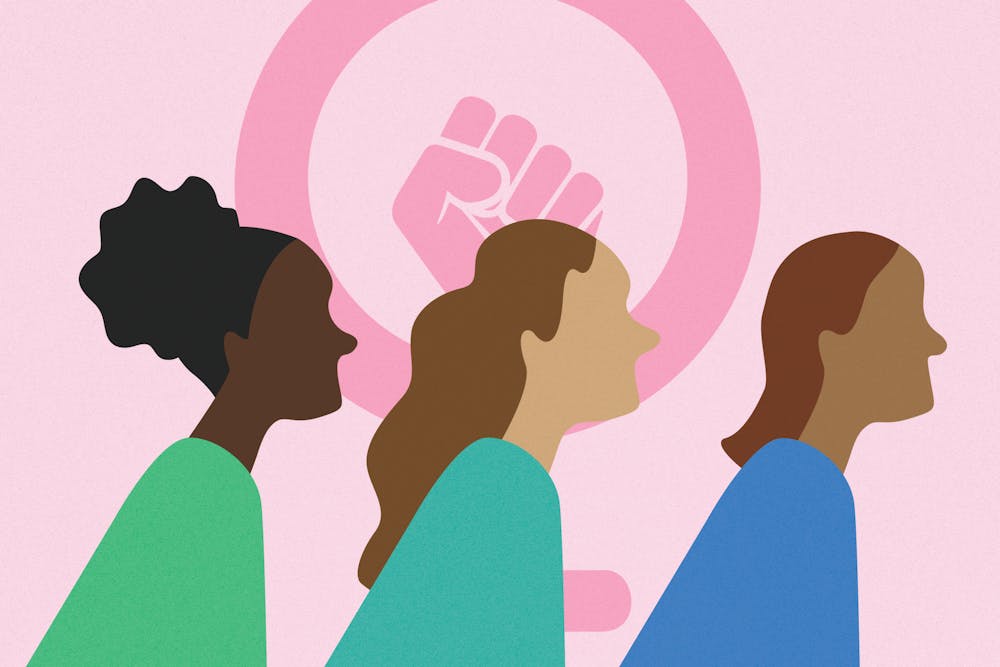In the prologue to “Women of Color and Feminism,” Maythee Rojas writes that “social injustice — whether we cause it, are hurt by it, or happen to benefit from its effects — dehumanizes all of us.”
Regardless of if Black feminist thought is something you’re familiar with or entirely new too, it’s an important framework to re-historicize social activism and recontextualize ourselves within the world we live in.
Though I am not a Black woman and will never experience or create Black feminism, it's fundamental to my world view and should be crucial in shaping the way society talks about issues of social injustice. It isn’t the role of women of color to educate white women; it’s the role of white women to get educated. This means interacting with women of color on their own terms and understanding them in their own words.
Throughout history, mainstream feminism has focused on the narrow concerns of upper and middle-class white women, and while discourse over last names, body hair and climbing the corporate ladder are feminist topics, they are not the most pressing concern for a vast majority of women. Mikki Kendall discusses this in her book “Hood Feminism: Notes from the Women That a Movement Forgot” and points to topics less frequently considered as being feminist, including gun violence, hunger, housing, education, race and poverty.
In 1851, Sojourner Truth delivered her “Ain’t I a Woman?” speech at a women’s rights convention in Ohio. In a transcript provided by the National Park Service, Truth said “That man over there says that women need to be helped into carriages, and lifted over ditches, and to have the best place everywhere. Nobody ever helps me into carriages, or over mud-puddles, or gives me any best place! And ain’t I a woman?”
In this speech, Truth is pointing to a society that makes Black women invisible, a world where "women" are white and "Black people" are men.
In 1989, lawyer Kimberlé Crenshaw coined the term “intersectionality,” describing it as “a lens through which you can see where power comes together and collides, where it interlocks and intersects.” Though the term intersectionality came over a century after Sojourner Truth’s “Ain’t I a Woman?” speech, her speech uses and emphasizes the importance of an intersectional lens.
This intersection of identity and subsequent interlocking of oppression fuels Black Feminist thought. The Combahee River Collective, a group of Black feminists, reflects this in their 1977 collective statement, saying “The most general statement of our politics at the present time would be that we are actively committed to struggling against racial, sexual, heterosexual and class oppression, and see as our particular task the development of integrated analysis and practice based upon the fact that the major systems of oppression are interlocking. The synthesis of these oppressions creates the conditions of our lives.”
Central to Black feminist thought is reclaiming intellectual traditions. Patricia Hill Collins writes in her book "Black Feminist Thought" that “reclaiming Black women’s ideas involves discovering, reinterpreting, and, in many cases, analyzing for the first time the works of individual U.S. Black women thinkers who were so extraordinary that they did manage to have their ideas preserved.”




